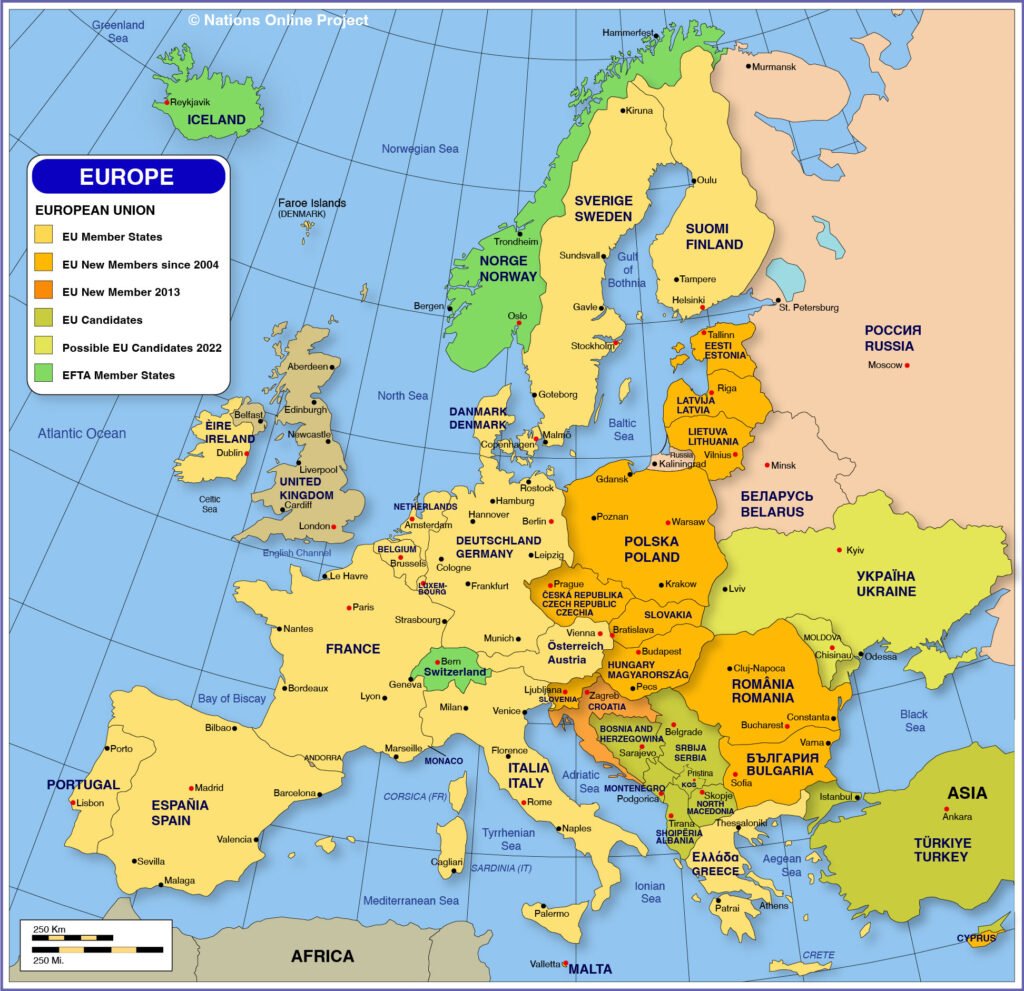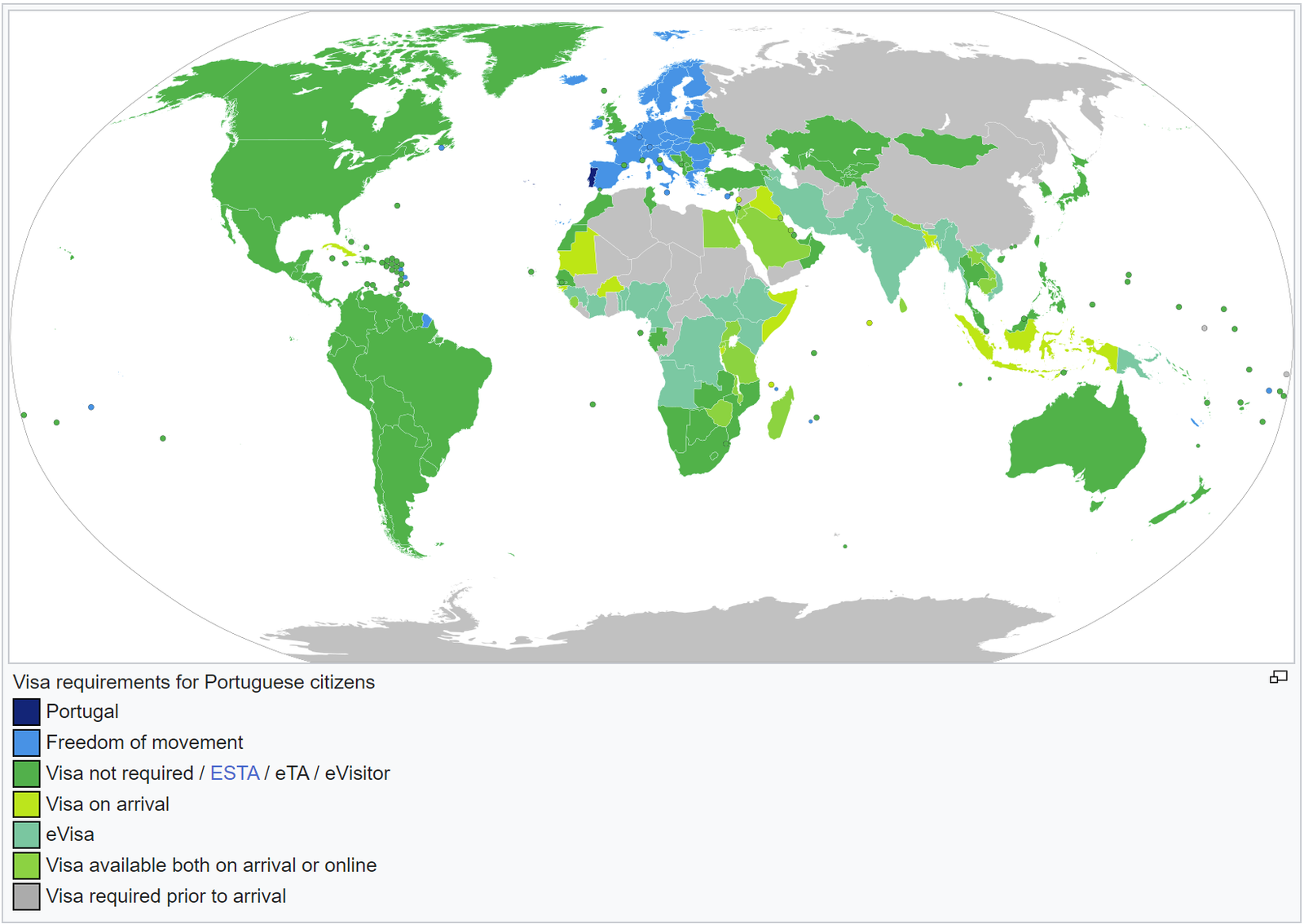How To Get Residency in Portugal: A Comprehensive Guide
Capital: Lisbon
Population: 10,467,366 (90th, as of 2022)
Ethnic groups: 92.5% Portuguese
Area: 92,225.2 km2(109th)
Offical Language: Portuguese
Currency: Euro
GDP per Captial: $26,013 (41st)

Country Profile:
Portugal, situated on the southwestern tip of the European Iberian Peninsula, is a member of both the European Union and the Schengen Area. Expats make up 7% of its population.
Portugal is a member of the United Nations, OECD, European Union, and the Community of Portuguese Language Countries. Its Social Progress Index ranks 18th globally, ahead of France, Italy, and Spain.
Visa & Immigration System:
Portugal is a diverse and open country, offering multiple long-term residency visa application pathways for foreigners.
In addition to basic visas such as the work visa, student visa, and family reunification visa, the most common Portuguese long-term residency visas include the following:
1. Golden Visa: The Portugal Golden Visa is one of the largest investment migration programs in the world. This program allows non-EU citizens to obtain long-term residency in Portugal in exchange for an investment ranging from €200,000 to €500,000.
Golden Visa holders and their dependents (up to three generations: grandparents, parents, and children) can freely work, study, and live in Portugal, enjoying local educational and healthcare resources.
Currently, the investment options available under the Portugal Golden Visa include donations, investment funds, and company incorporation/capitalisation.
2. HQA Visa: This is an entrepreneurship visa. The financial requirement is lower than the Golden Visa, but the requirements for the applicant’s qualifications are much higher:
You need to possess a certain level of professional expertise and educational background and invest over €170,000 in a qualified company in Portugal or start your own business.
The key to this program is that the company you invest in or start must be supported by a Portuguese university or business incubator.
3. D2 Entrepreneur Visa: This is also a business visa, issued to foreign individuals who want to start a new company in Portugal.
Compared to the HQA visa, the D2 Entrepreneur Visa has a broader scope and no specified minimum investment amount. However, applicants must demonstrate the business’s potential for development and its potential contribution to Portugal.
Furthermore, the renewal of the visa is closely linked to the company’s development.
4. D7 Passive Income Visa: This visa is issued to foreigners who have a stable passive income.
To apply for the D7 visa, you need to prove a stable annual passive income sourced from pensions, rental income, dividends, or interest. The official income standard is tied to the minimum wage, which is approximately €10,440 per year for a single applicant (the figure increases yearly). In actual applications, the amount you may need to show could be significantly higher.
5. D8 Digital Nomad Visa: This visa is issued to remote workers who can perform their overseas work remotely while residing in Portugal.
The D8 visa is one of the few European digital nomad visas that offers a pathway to apply for permanent residency and a passport. Currently, it requires applicants to show a stable monthly income of €3,480 and maintain a bank deposit of €10,440 in a local bank account.
Permanent Residency & Citizenship:
Foreigners who have legally resided in Portugal for 5 years are eligible to apply for permanent residency.
After living in Portugal for ten years and maintaining your legal residence status, you become eligible to apply for Portuguese citizenship.
To be eligible for citizenship, you must meet the following core requirements:
-
Legal Residence: Maintain legal residency in Portugal for at least ten years.
-
Language Proficiency: Pass a basic Portuguese language test (at least A2 level proficiency).
-
Clean Criminal Record: Have no relevant criminal convictions in Portugal or your home country.
Passport Power:
Portugal recognizes dual citizenship and is a member of both the European Union and the Schengen Area. Its passport is ranked 5th globally. Passport holders enjoy visa-free or visa-on-arrival access to 188 countries and territories worldwide.

Official Links:
Portugal SEF residency page:https://imigrante.sef.pt/en/solicitar/
Portugal Visa Application Form: https://vistos.mne.gov.pt/images/formulario_visto_nacional_en.pdf
Portugal SEF visa application platform:https://ari.sef.pt/account/default.aspx